A mobile home is a type of vehicle that also serves as housing. It has received and is gaining popularity since the end of the last century. All over the territory of our vast planet, there are cars with caravans or even full-fledged mobile homes. But in our country, even to this day, it is quite a rarity and luxury. It is used for travel, for long trips, including abroad – without bothering with the purchase of plane and train tickets, searching and booking hotels and hotels, as well as to be as independent as possible from everything. For some, this is temporary housing for the period of construction of a dwelling or use as a caravan.
Table of Contents
Pros and cons
In this world, everything has both positive aspects and disadvantages. In order not to be disappointed in your purchase, you need to make an informed choice. Those who want to buy a mobile home can be divided into several categories:
- First – outdoor enthusiasts, for whom an ordinary tent creates great discomfort, and to spend their vacation in more comfortable conditions, they choose a motorhome.
- The second are those who like to travel, who cover distances, do not stay in one place and, to eliminate problems with moving, booking hotels, hotels, choose a motorhome.
- The third is a category of people who have chosen a motorhome as their only and permanent home on a specific site or established camping.
Among the many advantages of RV, such as you do not pay for hotels, short-term rented housing, do not have a dependence on a specific place, time, and date, independently determine the routes of movement, places of stops, rest, and visits to various places.
These vehicles also have disadvantages. No accommodation, travel, or vacation will be so comfortable and enjoyable if the mobile home is not powered. If the electricity goes out, then your vacation can be considered damaged. But how can you understand what is wrong with your RV? How do you know if the converter is broken? Maybe the reason is completely different? We have written a guide for RV users to troubleshoot your mobile home. This will help you determine if your converter is bad or is there another reason.
What is a converter
The converter is designed to convert the voltage from a 12V car battery into an alternating current voltage of 230V. It can be used to power a variety of household electrical appliances on the road: a vacuum cleaner, lamp, hairdryer, kettle, and many others. The working power is 2000 W and the maximum is 4000 W. The device is very easy to operate and easy to install in the cabin.
If the converter does not work, you need to understand what is the reason and, if necessary, replace it. Replacing converters can cost anywhere from $ 100 to $ 2,000. Don’t try to save money on installing the converter and do it yourself. This way you can burn your entire system. Better let experienced specialists do this work.
RV converter troubleshooting
Below we have put together the most common causes of RV converter problems. If you have any from this list, then you need to buy a new converter.
- There is no output current when the input is powered. This violation manifests itself most often and is associated with two reasons. Your fuse may be blown or the electrical continuity is compromised. There can be several reasons why the fuse has blown. This is a thermal shutdown, polarity reversal, or network overload.
- The output characteristics do not correspond to the specified values. Such a malfunction occurs if the power unit has broken down, there is a loss of current in the terminals.
- Frequent shutdowns of the converter during operation. Such a malfunction occurs if a short circuit occurs in the circuit. The inverter protection system receives a signal and shuts down automatically. It can also occur due to overheating of components.
- Unstable voltage, wrong output waveform. Open the converter and look for dust and dirt. Also faulty power transformer, transistors can become the reason.
- Overheat. If there is a lot of dust in the transistor, then the components stop cooling evenly. The fan starts to work poorly or breaks down altogether and does not cool the air. Overheating is the most common reason why the inverter will not work even if the mains voltage is sufficient for normal operation.
- Some devices do not work when connected to a converter. This problem can be caused by high inrush currents. If you turn on several devices at the same time and increase the current consumption to the maximum, the converter may shut down.
- Inverter failure often occurs due to the use of improper components, wires, fans, and other components. For example, you have to use copper wires, and most manufacturers want to save money and install aluminum wires.
- It is important to remember that most converters are not designed for continuous operation at maximum loads. Some are only used in conjunction with solar panels. Such converters must not be connected to rechargeable batteries.
RV Inverter Warning Signs
The RV inverter will only issue warning signs if it is bad and requires replacement or repair. To understand whether it is broken or not, look at how your electrical appliances work. There may be dim lights in the RV, like a refrigerator, or it may not freeze at full strength. And a clear sign will be a sound, the inverter can beep, signaling that it has broken down.
Check the cooling fan
One of the most common reasons the current converter does not work is a fan failure. The fan has an important function, it prevents the device from overheating by switching on and off periodically. If the fan is not working and the temperature in the inverter is too high then you may have a problem with the electricity. The easiest way to check the fan is to check the voltage at the input of the converter. The cooling fan will not work if no current flows past them. Check the thermostat and temperature sensor. To do this, you need to check whether they pass current through themselves. Do not supply power to the fan through the sensor. If the fan is running, the problem is with the thermostat. If the fan does not work, then it must be replaced.
Check your batteries
First, pay attention to the batteries. If you have a broken current converter, it could negatively affect your batteries. The converter feeds the RV’s batteries, if the batteries are depleted, the converter may stop working. Use a voltmeter to check electrical measurements and a multimeter to check voltage, watts, and current. If you have completely discharged the batteries, removed them from the motor home, checked them, and the problem persists, most likely you will need to replace the current converter.
Check voltage
To make sure your RV converter is defective, check the converter voltage. Abnormal voltage ranges will cause electrical problems in your atom. The normal voltage range is about 108-130 volts at the input and about 11-13 volts around the breaker box. Take a voltage meter to check the voltage. Check voltage at the entry point and voltage at the DC breaker box. If the indicators are above the norm, then repairs need to be made.
Repair of RV converters
To repair the voltage converter, you need to see which parts have failed and replaced. This is the most common repair method. What units fail in most cases? For repairs, it is sometimes worth replacing transformers, power transistors, diodes, or fuses. Sometimes, if they make the current converter of separate modules, you will need to check each of them for serviceability and, if necessary, replace the one that has failed.
Observe the following when repairing RV converters:
- The major difficulty in repair is to identify the breakdown correctly and in time.
- It is also difficult to find the right transistor analog. It is not always possible to find original components. Structural elements such as diodes, resistors, capacitors, fuses, fans can be purchased regardless of the manufacturer. They have no design features. When buying such parts, the key thing is to correctly select them in terms of power and voltage.
- The replacement of powerful transistors is also difficult. When mounting this component, you need to apply thermal paste, mount the transistor on the radiators. If you do not follow these rules, then the power switch will constantly overheat, turn off, and, as a result, will quickly fail. They also have protection circuits.
- In most modern industrial inverters, they include additional devices in the design. But in order to make the current converter cheaper, unscrupulous manufacturers do not build in protective circuits.
Having made the correct diagnostics, you can always repair the current converter on time and with high quality. Get a professional, so they can check and test every part of the converter and replace it in case of burnout.
FAQ
What are the symptoms of a bad RV converter?
The most common symptoms of a bad RV converter include issues with lights, appliances, and electronics not working properly. You may also experience slow charging times or circuits that run erratically.
If you have a digital multimeter, you can use it to test the current output of your converter to determine if it is failing. You should expect 12-volts DC from the converter when it is running correctly. If you measure less than this amount then you will need to replace the unit.
Additionally, look out for any odd smells or smoke coming from your RV converter. This could indicate a short circuit within the unit and could potentially be dangerous if not addressed immediately.
What happens when the RV inverter goes bad?
When the RV inverter goes bad, you may experience any of the following issues:
- Your appliances won’t work when plugged into shore power or generator power.
- The lights in your RV will dim or flicker when AC power is applied.
- Any electrical components that require AC power may not be able to run.
- You may also notice a burning smell coming from your RV’s inverter, wiring, or other AC components if it has been damaged by overloading or overheating.
Can a bad RV converter drain the battery?
Yes, a bad RV converter can drain the battery. If the converter isn’t working efficiently, more current will be drawn from the battery than is necessary to power your RV’s electrical devices and appliances. This can quickly deplete your battery’s charge, making it difficult or impossible to use vehicle-powered items. Additionally, if you leave a bad RV converter running all night while you’re sleeping, it could cause the battery to completely drain overnight. To prevent this from happening, make sure to check that your RV’s converter is in good condition before each trip.
Will an RV converter work without a battery?
No, an RV converter will not work without a battery. The converter is designed to charge the battery while providing power to your appliances and lights. Without a battery to store the energy produced by the converter, there will be no power available for use. Therefore, if you are experiencing issues with your RV’s power supply, it is important to check that the batteries have sufficient charge before assuming that your RV’s converter is bad. You can do this by checking the voltage at each of your battery terminals using a multimeter. If the voltage reads below 12 volts, then you may need to recharge or replace your batteries.
Does an RV converter charge the battery?
Yes, an RV converter does charge the battery. The main purpose of an RV converter is to convert 120-volt AC power into 12-volt DC power so that the devices in your RV can run off of a single 12-volt battery. An RV converter will also keep your battery charged while you are using it and when not in use, it will trickle charge the battery and often include a built-in circuit breaker or fuse for protection. When deciding which type of converter to get for your RV, be sure to pick one with enough wattage output to handle all of your needs. It’s always better to have more than not enough!
How do I reset my RV inverter?
If you believe your RV inverter might be malfunctioning, it can help to reset the system. To do this, simply unplug the RV converter and wait for about a minute. Then plug it back in. This will reset the circuit breaker switch of the converter and should fix any issues with its operation.
It is also important that your RV has power running through it when you reset the system. If there is no power to the vehicle, then resetting won’t do anything. Make sure that all your switches (including breakers) are in the proper positions before attempting to reset your inverter.
Should an RV converter fan run continuously?
In most cases, no. It’s normal for the fan on an RV converter to come on every once in a while as it’s designed to help keep the converter cool so that it continues to run optimally. However, if your RV converter fan is running continuously or coming on more often than usual, this could be a sign that something is wrong with your converter and you should double-check that there are no underlying issues. Additionally, if your fan is making strange noises, such as squeaking or grinding, it may need repair or replacement.
Why is my RV not getting power?
It may be that your RV converter is bad. A converter is responsible for transforming the AC power from a campground or generator into DC power to run lights, fans, and appliances inside the vehicle. Many times when an RV isn’t getting power, it’s due to a bad converter.
If you suspect that your RV converter is bad and are looking to test it, there are two simple tests you can do. First, check all of the fuses in your RV as they may have blown due to a short circuit or other issue. If they look okay then you can also check the voltage at each of the outlets in your RV. The voltage should be consistent with what’s being supplied by the campground or generator. If it’s lower than expected, that could indicate a problem with the converter and it may need to be replaced.
How do I test my RV converter?
If you suspect that there may be an issue with your RV converter, it’s important to test it. Fortunately, testing is pretty straightforward and can help you confirm whether or not there is a problem.
The best way to check the functionality of your RV converter is by performing a visual inspection. Take a look for any signs of damage or corrosion on the case, wires, or connections. Also, make sure all the mounting screws are tightened securely and nothing looks loose.
Do RV converters have fuses?
Yes, RV converters have fuses. They are usually located on the outside of the box and can be replaced if blown. It’s also a good idea to check all other fuses on your RV as well, in case they are also blown. If you still aren’t able to get your converter working after replacing the fuse, then it might be due to a bigger issue with the device itself and you should contact an authorized service center for further assistance.
What causes low voltage in RV?
Low voltage in an RV can be caused by a variety of factors, including faulty wiring, a bad battery, or a failing converter. A converter converts the 120-volt AC power from shore power or generator to 12 volts DC used by most RV appliances. When a converter fails it won’t be able to provide enough voltage to run the lights and appliances in your RV.
Why is my inverter fan not working?
If your RV converter’s fan isn’t working, there may be a few different issues that could be causing the problem. The most common issue is that the fan has become clogged with dust and debris over time, preventing it from spinning properly and creating an air flow. It’s also possible that the fan motor itself has gone bad or failed due to age or wear and tear. In either case, you should have your converter serviced by a trained professional to identify and replace any faulty parts. Additionally, if your RV converter is located in an area with high humidity or moisture levels, this can also cause the fan to malfunction and will need to be addressed as soon as possible.
Useful Video: RV Converter, replacing it! How to know it’s bad and how to replace it!
Final Words
In this article, we examined the most common problems with the RV current converter. If you carry out diagnostics on time and operate the device under the requirements in the instructions, then your RV converter will work longer than the warranty period.

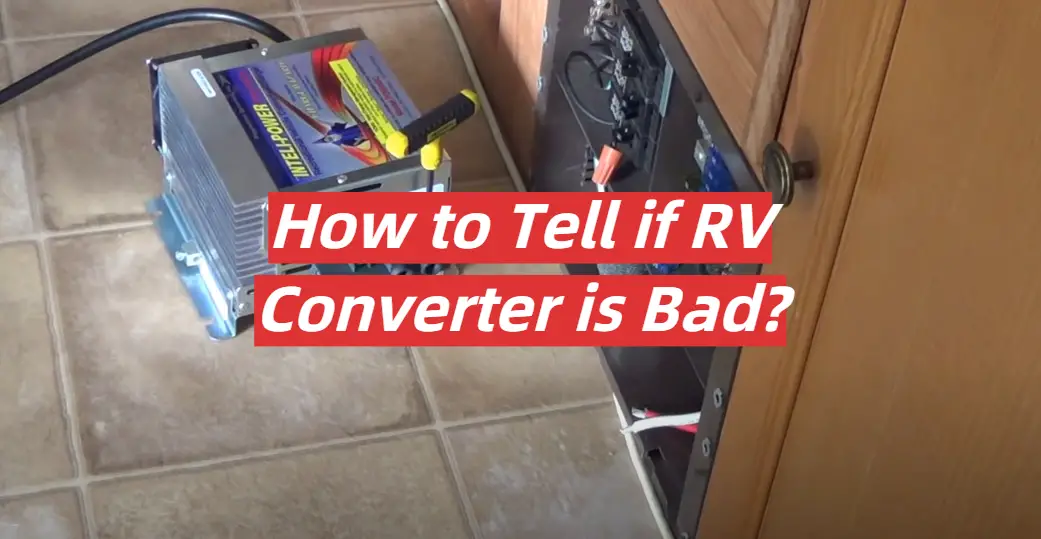
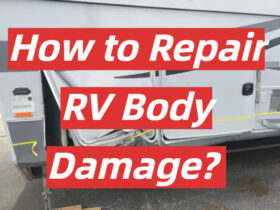
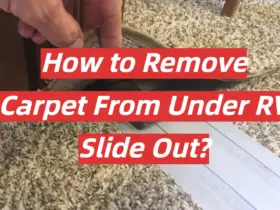
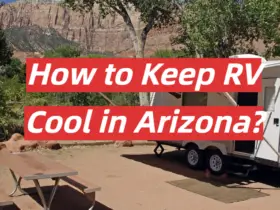
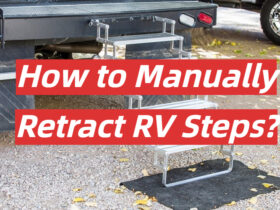
Leave a Reply